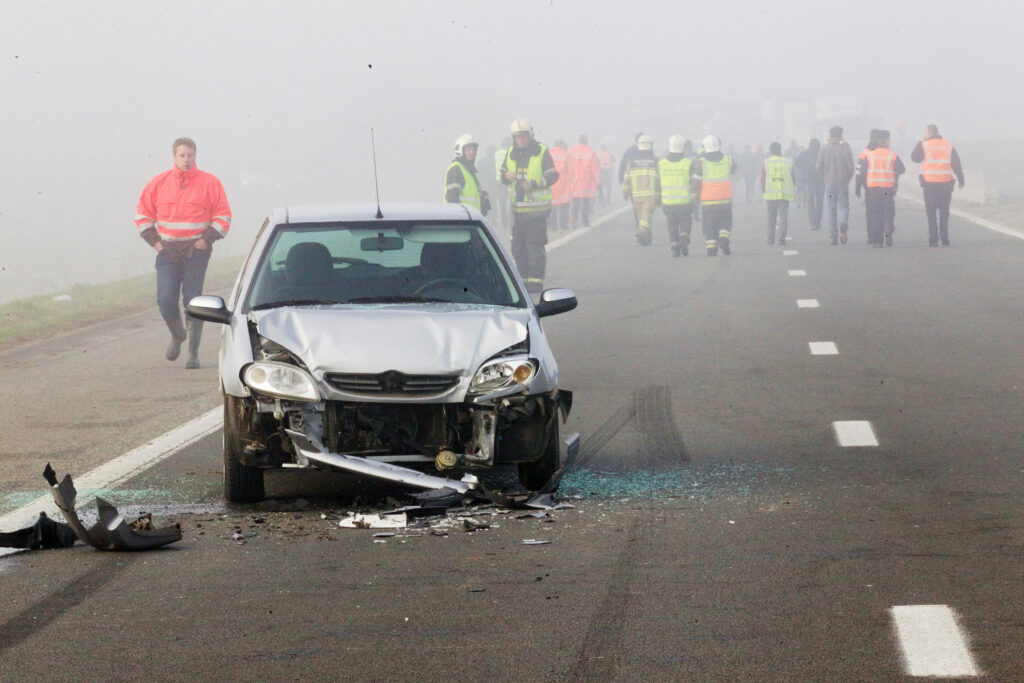Belgium's federal and three regional governments have committed to bringing road-related deaths down to zero by 2050. But despite recent declines in fatalities, there is still a long way to go to achieve the ambitious plan.
The Federal Government announced the national "All for Zero" road safety plan in 2021, which focuses on several key safety issues including speeding, distracted driving, and drink/drug -driving. Notably, the plan aimed to reduce serious accidents by 90%, ultimately achieving zero traffic-related deaths by 2050.
Commenting on the progress made so far, Stef Willems – a spokesperson for Belgium's road and safety institute VIAS – acknowledged the scale of the challenge but stressed the ambition driving it. "Is it realistic in the sense that we will get zero deaths in our country? No. But do I think that's the only target you can put forward as a society? I would say yes."
Willems highlights various measures that have been put in place to reduce road accidents. Several of these respond to changes in transport choices. For instance, a minimum age has been set to ride electric scooters and their use has been prohibited on pavements. These regulations have had noticeable effects.
Moreover, ongoing infrastructure changes – such as demarcating bicycle paths more clearly – and reducing speed limits in certain areas have also been key.
Despite the improvements, Willems acknowledges that the number of road deaths is not coming down quickly enough to achieve the federal targets set out in the All for Zero plan.
Putting the brakes on road casualties
2023 saw a total of 45,243 victims of road accidents. Though the vast majority only suffered minor injuries (92%), 3,261 were severely injured (7%) and 501 died (1%) within 30 days of the accident, according to the latest data by the statistics office Statbel.
Fatalities were highest among motorists (212), followed by cyclists (101), pedestrians (77) and motorcyclists (51).
The recent traffic safety data shows a slight decline in injuries nationwide (2%). The most significant decline has been in fatalities (7.2%) and the number of people seriously injured (4.5%) – two categories that had increased in the past two consecutive years.
Data: Statbel. Credit: The Brussels Times
To further reduce the number of accidents, VIAS has compiled a list of 12 key suggestions. This includes zero tolerance for alcohol for all drivers, regardless of how recently they obtained their licence, and a points-based driving licence system.
But the organisation warns that implementing these suggestions presents a separate challenge in itself.
'It’s all political will'
When it comes to officially enforcing new measures and taking on the suggestions put forward by VIAS, much depends on the political negotiations that proceed new legislation.
"It's all political will," says Willems. "Politicians talk about a lot of things; road safety is just a very small part [of political discourse]. We don’t have a direct impact on the negotiations (...) we can only give the information, the objective facts."
To make the point, Willems highlights the proposed points system for driving licences. Though a majority of parties in Flanders support this, French-speaking parties are less convinced. The lack of political consensus directly delays improvements to road safety.
Additionally, despite its importance, road safety is often overshadowed by other topics in political and public discourse. "There was an accident a couple of months ago in Ghent in which two cyclists were killed, and the driver was under the influence," Willems recalls. "The media was asking 'How was this possible?' but after two days, we move on to another subject."
Though Willems acknowledges the many other issues that weigh on society, he is adamant that VIAS' proposals to improve road safety should be a priority.
"Every two days, around three people in Belgium are killed just going from point A to point B. Most of the time these are accidents that could be less severe or prevented."
Ultimately, regardless of the need for more political input to implement crucial measures, Willems stresses that everyday road users still have the power to make a difference in road safety.

